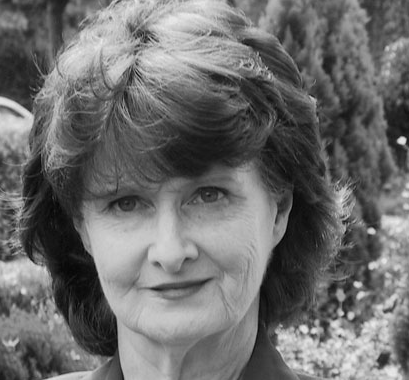Shockingly, a wife who believed "I was not myself, myself" in her everyday dutifulness felt herself remade when her husband, coming home tight, split her lip and knuckled her neck "to its proper angle"; and was grateful for his remodelling. Yet the all-too-ordinary often slipped into something else. She was too deeply read in the myths and epics of Ireland for it to be otherwise. The life that was lived in a brick house could still have a visionary quality.
令人震驚的是,一個(gè)盡著日常責(zé)任,并認(rèn)為“這不是真正的我”的妻子,在丈夫準(zhǔn)點(diǎn)回家,掰開(kāi)她的雙唇,用手將她的脖子按到“合適的角度”后,感覺(jué)自己被重塑了,并且對(duì)他的改造感到感激。但是這些過(guò)于平常的事經(jīng)常會(huì)發(fā)生變化。她對(duì)愛(ài)爾蘭的神話和史詩(shī)太了解了,以致于無(wú)法接受。在磚房中的生活里可能仍然會(huì)產(chǎn)生遠(yuǎn)見(jiàn)卓識(shí)。
In "Night Feed", she noticed not only the rosy zipped sleeper, the hard suckling, the silt of milk left in the bottle, but the movements of earth and stars, and the "long fall from grace" as the feed ended. The stopping of the tumble-dryer, like death, began "to bury/The room in white spaces." An old florin, brushed on a shelf, turned into a silver salmon. That everyday life was also not remote from history. But she preferred to call it The Past: a place of shadows, fragments, defeats, rather than heroics.
在《夜間喂食》中,她不僅注意到了玫瑰色的拉鏈枕木,堅(jiān)實(shí)的吸吮,瓶中殘留的牛奶淤泥,還有地球和星星的運(yùn)動(dòng),還有在喂食結(jié)束后感到的“長(zhǎng)時(shí)間的失寵”。烘干機(jī)的停止就像死亡一般,開(kāi)始將“房間埋葬在白色的空間內(nèi)”。刷洗過(guò)在架子上的二先令銀幣變成了銀色的鮭魚(yú)。日常的生活也并非遠(yuǎn)離歷史。但是她更喜歡叫它“過(guò)去”:一個(gè)充滿(mǎn)陰影,碎片,失敗,而不是英雄的地方。

The Troubles appeared, through an ancient television set, as "grey and greyer tears" and "moonlight-coloured funerals". Emigration to America was a woman in a gansy-coat on the deck of the Mary Belle, holding her half-dead baby to her. In "Quarantine" the worst year of the famine, 1847, was encapsulated in a couple found frozen, he still carrying her, holding her feet against his breastbone to try to warm them.
通過(guò)一個(gè)古老的電視機(jī),引出了北愛(ài)爾蘭暴力問(wèn)題,有“比灰色更灰的眼淚”,還有“月色葬禮”。“移民到美國(guó)”講的是一名穿著在甲板上的穿著羊毛毛衣的女人,她抱著自己的半死嬰兒。在《檢疫》中饑荒最嚴(yán)重的一年,1847年,一對(duì)夫婦被凍死。他仍然抱著她,把她的腳放在自己的胸骨上,試圖溫暖它們。
譯文由可可原創(chuàng),僅供學(xué)習(xí)交流使用,未經(jīng)許可請(qǐng)勿轉(zhuǎn)載。












